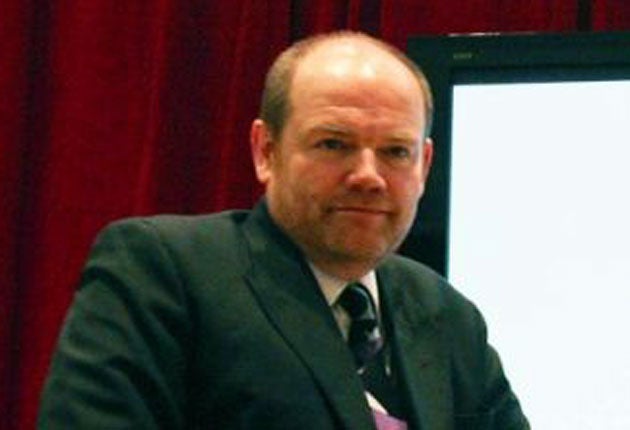BBC admits plan to scale back website
Corporation likely to rein in operations across TV, radio and internet

The director general of the BBC yesterday indicated that there would be a reduction in the scale of its popular website, and possibly the closure of some of its digital channels or radio stations, following claims from politicians and rivals in commercially funded media that it had grown too big.
But Mark Thompson also made a fierce defence of the independence of the Corporation and claimed that public service broadcasters around the world were under threat because of the downturn in the media economy.
Mr Thompson, who is leading a strategic review of the BBC, said the Corporation would be cutting back areas of its output following the switch-off of the analogue signal in 2012. "Expect to see reductions in some kinds of programmes and content – look, for example, at the current scope of our website – and a close examination of the future of our service portfolios once switch-over has been achieved."
He said the BBC would in future be reducing its expenditure on the acquisition of foreign-made programmes in favour of increasing the amount of British-made content. Discussing bbc.co.uk, Britain's largest website, the director general questioned the scale of the project and whether "many millions of pages that are up there need to be there". He said the review would question the value of this content. "Is it sufficiently up to date, is it relevant? It might be a slightly smaller website. It might be stronger, making sure we are playing to our strengths."
Mr Thompson signalled that a period of growth for the BBC, when channels were launched and budgets extended, was at an end. "The high-water mark of new channel launches and of content investment was passed some years ago. Instead, the focus is on offering convenient new ways of giving the public access to existing content, rather than representing expansions into fresh content areas."
He accepted that in the three years since the BBC last conducted a strategic review, the media landscape had "changed almost beyond recognition" and "the effect of that, and of the downturn, on many incumbent media businesses has been devastating".
But, speaking at the Voice of the Listener and Viewer conference in London, Mr Thompson also defended the BBC's record and suggested that without the Corporation, Britain would be left with "a big, black cultural hole".
He said economic and technological changes explained why "the assault on public service broadcasting is happening across the developed world", citing comments made in Germany, Italy and Belgium. In Britain, Mr Thompson said, the language of the BBC's rivals was "becoming more extreme and intemperate". He said the BBC "should not respond to, let alone be cowed by, vindictive or groundless press attacks", including those over issues of taste and decency, saying the Corporation had a duty to "stand up for creative freedom and ambition".
He also claimed that, in spite of public criticism of BBC management by both leading parties, "underlying political support for a strong, independent BBC also remains robust".
Join our commenting forum
Join thought-provoking conversations, follow other Independent readers and see their replies
Comments
Bookmark popover
Removed from bookmarks